Philipp Meyer helps bring the Texas tales of his hit historical novel to the small screen in an epic series starring Pierce Brosnan.
High atop the facade of the big house on the capacious McCullough Ranch, there is a banner that declares the reason for the well-attended celebration in progress: “Happy Birthday to Texas and Colonel McCullough.” The proclamation is appropriate, since Eli McCullough, the aging yet undiminished cattle baron who owns the house, all the land for acres around, and all the herds that graze upon it, actually was born on the same day that Texas became an independent republic. But here’s the thing: The more you see of McCullough, the more you suspect that, deep down, the man known far and wide as the “First Son of Texas” would rather have the billing on that banner reversed.
On this particular South Texas evening in 1915, however, McCullough has more pressing things than ego gratification on his mind. “The era of the cattle baron is over,” he confides to Jeannie, his 11-year-old granddaughter, during the opening episode of The Son, the ambitious new AMC series — based on the acclaimed novel by Philipp Meyer — set to premiere April 8 on the cable network. Many of the invited guests have been beckoned primarily to hear a sales pitch from McCullough, who desperately needs investors to fund an oil exploration on his property. To be sure, he does a very good job of hiding that desperation behind a beguiling veneer of robust self-confidence and, when the need arises, intimidating bluntness. (When an intimate hesitantly attempts to advise caution, McCullough barks: “Is this one of those vaudeville routines, or are you working your way up to a question?”) But while he’s alone with Jeannie, he admits that, if he can’t strike oil, he might lose the land he has worked and fought and even killed to claim and maintain.
“Does that scare you?” Jeannie asks. McCullough smiles cryptically and replies: “Not anymore.”
As millions of readers already know, and television viewers soon will discover, McCullough is a man who was purged of fear a long time ago. Or as he puts it: “I was taught at a very early age that you have to roll with the punches.” No kidding.
Young Eli was scarcely in his teens when Comanches raided his family’s Central Texas homestead; brutally killed his mother, sister, and brother; and dragooned him into joining their tribe. Years later, he returned — somewhat reluctantly — to the world of white men, served as a Texas Ranger, and methodically built his massive land and cattle empire. And at every step along the way, his actions were informed by the ruthlessness of his Comanche captors. “It had become clear to me,” he says at one point in Meyer’s 2013 novel, “that the lives of the rich and famous were not so different from the lives of the Comanches: you did what you pleased and answered to no one.”
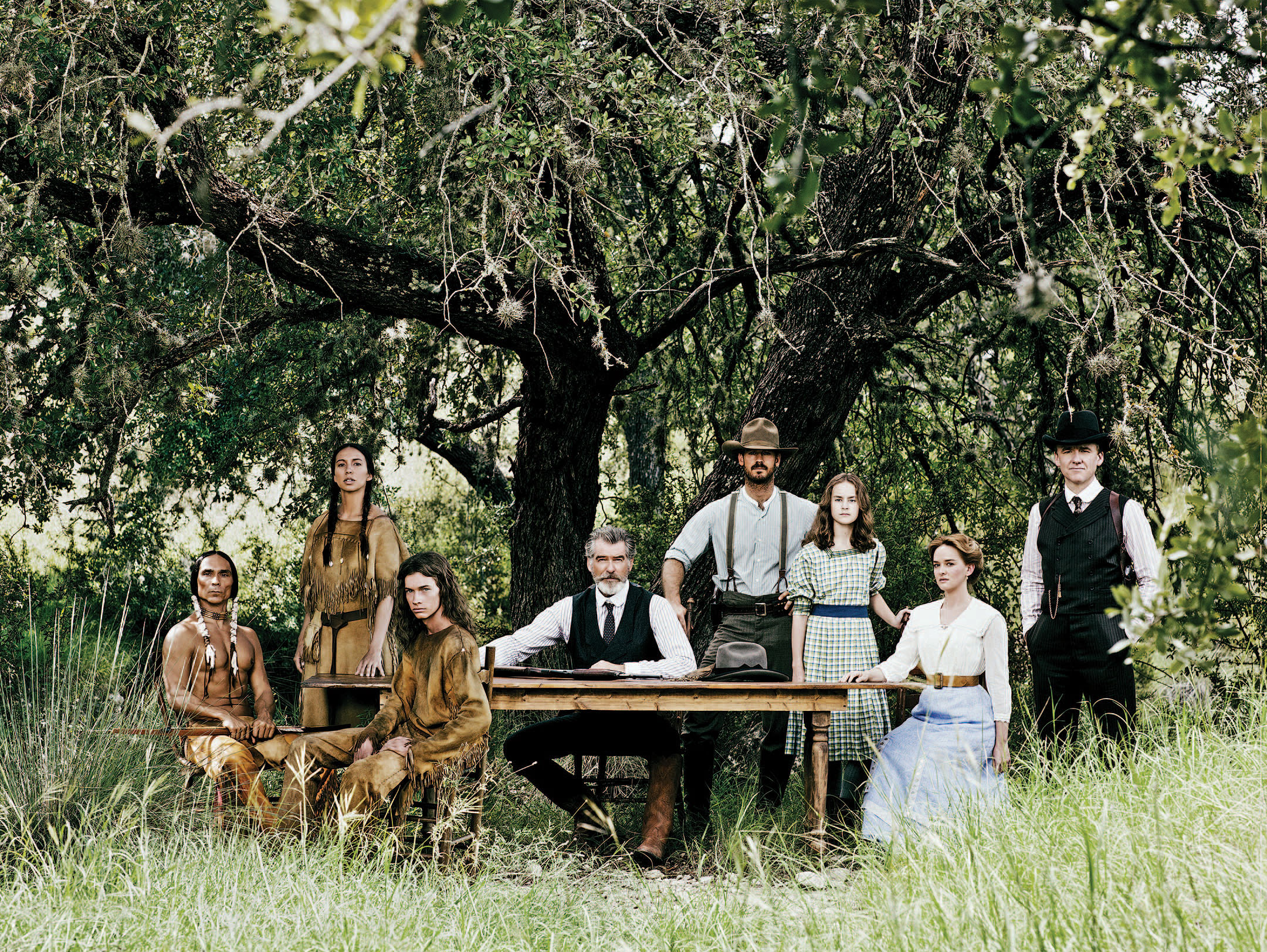
Throughout the 10 episodes of its premiere season, The Son will progress on two parallel narrative tracks: one charting the evolution of young Eli (played by Jacob Lofland, late of Maze Runner: Scorch Trials and TV’s Justified) from callow innocent to hardened warrior, the other detailing the single-minded struggle of the older McCullough — played by international film star and former 007 Pierce Brosnan — to maintain his legacy by any means necessary during the turbulent era of the Mexican Revolution and the Bandit Wars of Texas.
Meyer’s novel features a third story line, one focusing on Jeannie McCullough (who was identified in the book as Eli’s great-granddaughter), but that narrative track has been saved for a later time. It’s one of several alterations Meyer has made while adapting his epic tome for television. As an executive producer, co-creator, and contributing scriptwriter for the series, however, the author remains well-positioned in the catbird seat when it comes to keeping the enterprise true to his original vision.
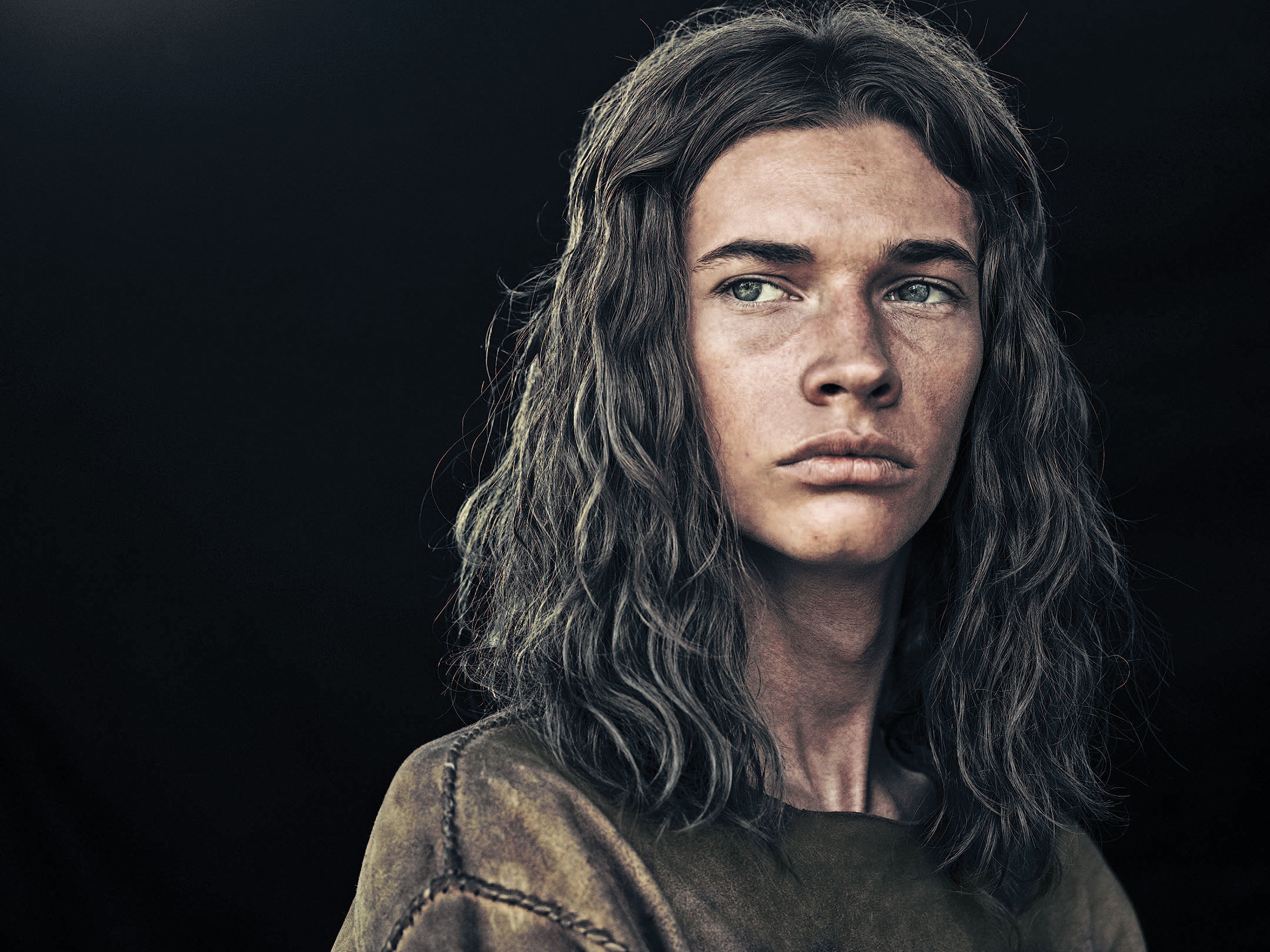
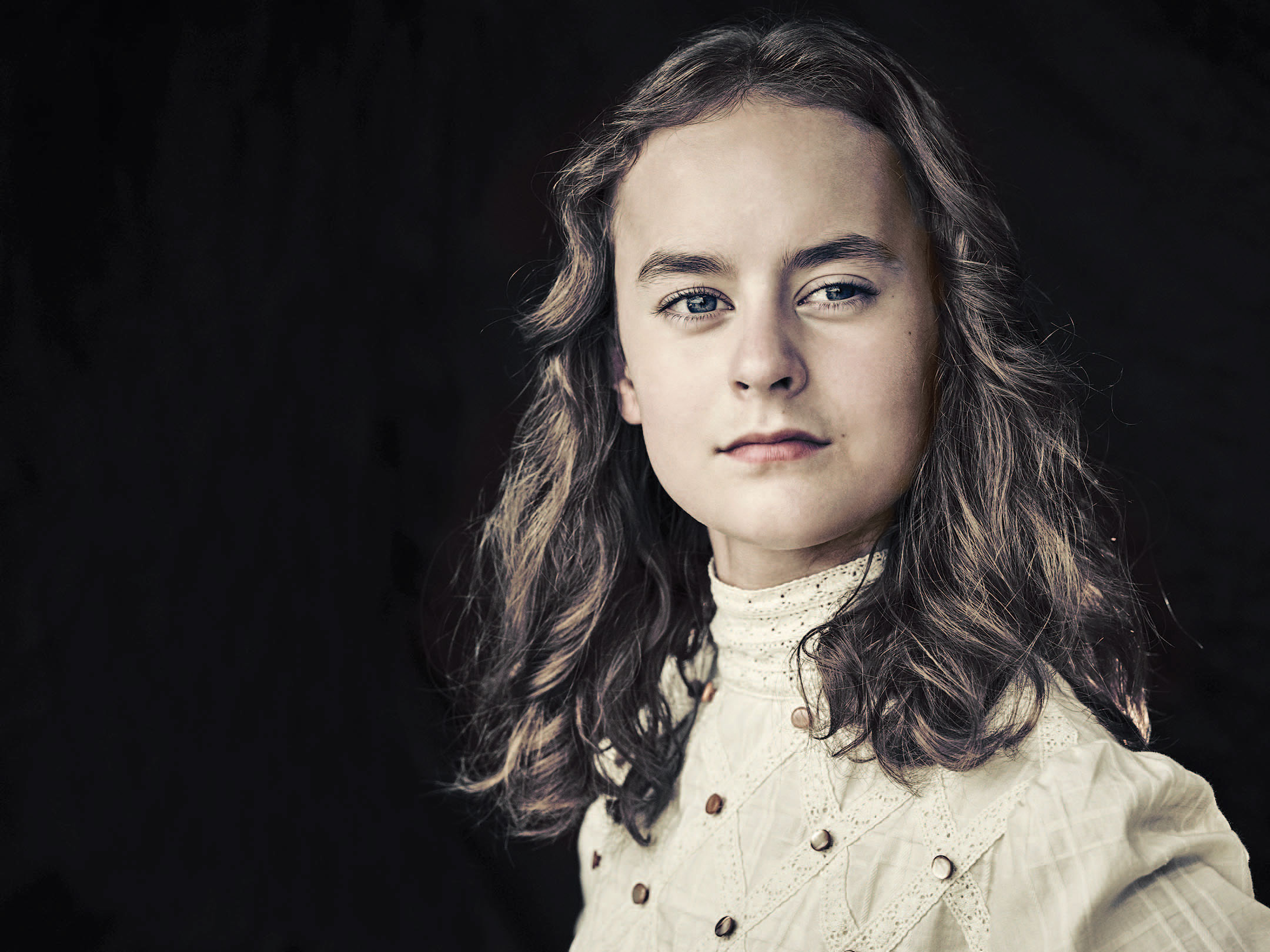
The TV version “doesn’t feels like a second draft,” Meyer says. “It feels like a second book. For instance, in the book, old Eli is seen only from his son Pete’s point of view. And Pete, in the book, is kind of an unreliable narrator. He exaggerates a lot of stuff and doesn’t quite tell the truth all the time.” In the series, “we get to see the mature Eli McCullough, as played by Pierce Brosnan, through a much more objective point of view.
“Of course, when you see what the actors do well, that changes it too. In theory, actors can do anything,” Meyer adds. “But if you write to their strong points, you get a better performance.” For example, Henry Garrett, the actor playing Pete, Eli’s appreciably less callous son, “is a very quiet, thoughtful guy, so we changed Pete a little bit from the book. And there were some things that we scripted that I couldn’t really imagine Henry saying, so we changed the dialogue. That was nice, because you get an end result, an artistic result, that is much stronger.”
Garrett, an English-born actor last seen with Kevin Costner and Tommy Lee Jones in Criminal, describes Pete as a basically decent man who, when we first see him in the series, “is coming out of a somewhat stable period of his life, where he’s not being pushed too much on his ideals, or his view on the world, or how he wants to live his life with his family.” But with the Mexican Revolution raging on the other side of the border, and seditionistas crossing over to launch guerrilla attacks aimed at driving away gringo landowners, Pete finds it increasingly difficult to adhere to his moral code.
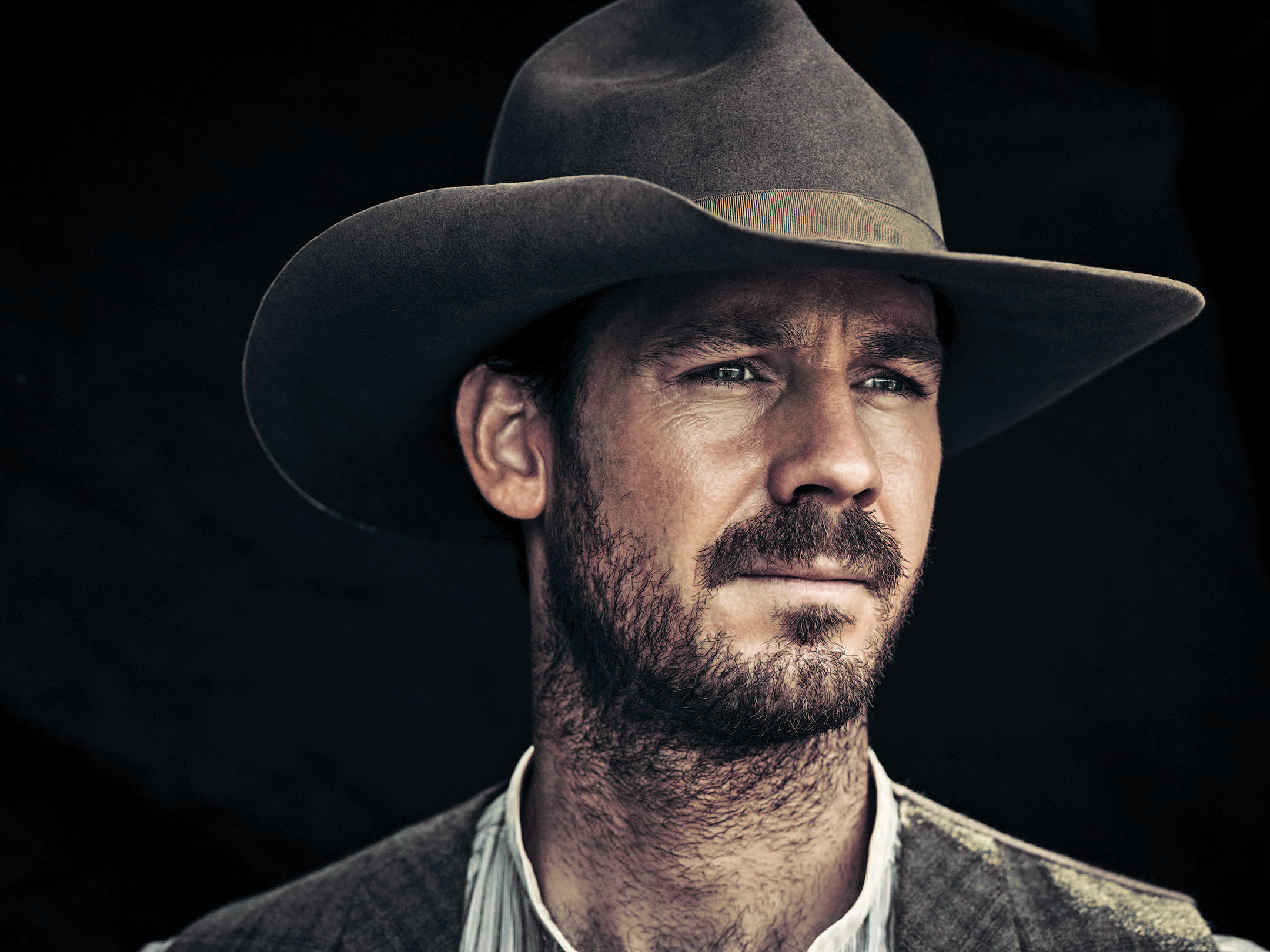
“The violence is increasing,” Garrett says. “And we’re having financial trouble on the ranch. These pressures lead to my father acting in more of an animalistic way.” To make matters worse, “Pete notices that the same instincts are inside of him. He kind of tries to maybe hide it, or just not feed that side of him. But at some point — it comes out.”
The ferocity isn’t limited to the male members of the extended McCullough family. Sally McCullough — Pete’s wife, Jeannie’s mother — “is a mama bear,” according to Jess Weixler (The Good Wife), the Kentucky-born actress cast in the role. “Really, she is the mother of this show. And she has a clear perspective on what’s really important in this world. Yes, this war is going on, and everything has to be considered when something is so epic.” But when push comes to shove, as it often does in The Son, “her vision becomes more tightly focused. It’s tunnel vision for the family. She’s a fighter.
“And,” Weixler adds with a playful smile, “she’s got a complicated love life, also.”
How complicated? Right from the start, it’s clear (to viewers, if not to Pete) that Sally has an exceedingly warm place in her heart for her brother-in-law, Phineas McCullough (David Wilson Barnes, aka Martin DeLaney of AMC’s Hell on Wheels). Meanwhile, Pete is drawn to the spirited and resolute Maria García (Paola Núñez), whose father, Pedro García (Carlos Bardem), is the patriarch of the last great Spanish family in South Texas — and the long-time frenemy of fellow rancher Eli McCullough.
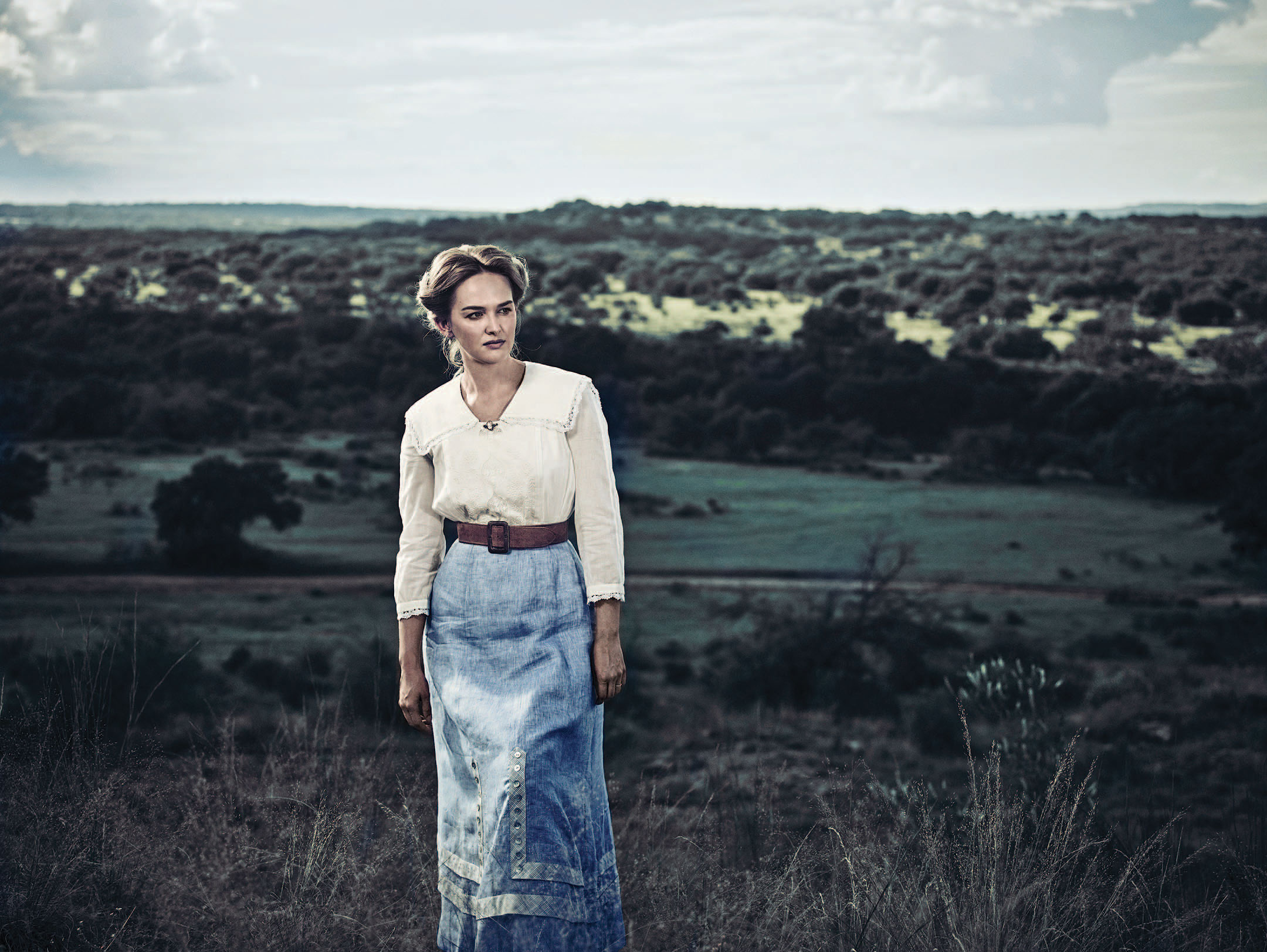
“Pedro is a troubled man,” Bardem says. “And he’s a proud man, a proud Spaniard. It’s like he says in the show: ‘The Garcías were here before this was even Mexico, before it was the Republic of Texas, before it became America.’ He’s trying to keep an impossible balance between his old and proud heritage and these modern, turbulent, furiously raging times that he has come into — that threaten to wipe him out and all that his family represents.” He wants to remain on reasonably amicable terms with Eli, despite his full awareness of the cattle baron’s true nature. (Conversing with Pete at the birthday party, Pedro says of Eli: “He thinks men are as expendable as beef.” Pete, it should be noted, doesn’t dispute this observation.) On the other hand, because his ranch lies between the McCullough ranch and the Mexican border, Pedro is hard-pressed to remain neutral, despite his best intentions, as the violence escalates — and all Mexicans in the area come to be viewed as potential enemies by the white ranchers and nearby townspeople.
Years earlier, his daughter Maria left her home and family — not because of volatile conflicts between two cultures but because of her own private rebellion. “When she was young,” Núñez says, “she always felt like she didn’t belong here. She felt weird and different from the other girls, and she couldn’t understand the ways, the traditions, that dictated roles for women. She wanted to be a free spirit.”
Maria journeyed to New York, where she “fell in love with the whole bohemian world and lifestyle.” Trouble was, “she wanted to be an independent woman, but she didn’t have the money to be an independent woman.” So she married. “But something happened to her husband,” Núñez says. “And now she’s back.” More important, she is still attracted to her childhood friend and true soulmate: Pete McCullough.
Núñez, a Mexican actress with an enviable list of credits in films and telenovelas, admits she was cast in The Son almost in spite of herself. “Actually,” she says, “I wasn’t going to audition because I was in Mexico doing a work thing, and I was traveling and stuff. My agent was like, ‘Do you want to audition for this?’ ‘No, I don’t have time.’ ‘Do you want to submit a tape?’ ‘I really don’t have time.’
Two weeks later, however, “My agent called me again and he said, ‘They haven’t found this character, Maria. Do you want to audition?’ So I said, ‘OK.’ And when I did, [Meyer] told me, ‘You are Maria. I’ve seen a lot of girls, but when I saw you and heard you, you were Maria.’ And I have to say: That felt so great.”
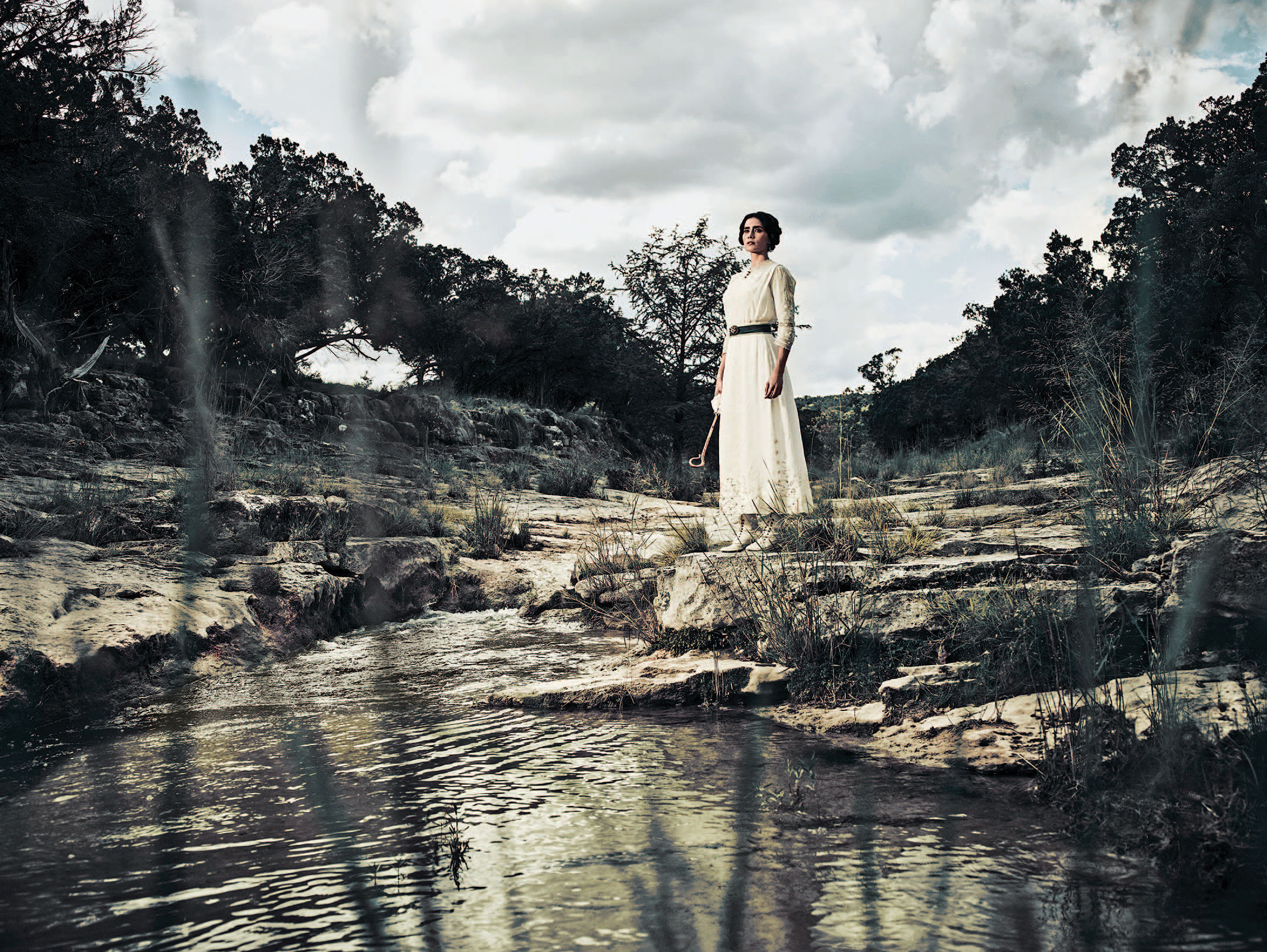
Meyer can barely contain his enthusiasm when he speaks of Núñez, Pierce Brosnan, and all the other actors in the AMC cast. In fact, he fully expects that, even though he invented the characters, it will be impossible for him to reread his novel without thinking of the faces and voices of the people who portray them in the series.
“If I can,” he says, “it means we’ve failed, doesn’t it? I mean, look, you’re trying to make something that’s great and that doesn’t happen when you’re stuck in your old way of thinking, in your old way of doing things. Really, these people are already beginning to replace ideas about the characters that I had while writing the book. Now I’m writing for Pierce, I’m writing for Henry, I’m writing for all these actors.”
No one is more surprised by this flexibility than Meyer himself. Like many authors, he originally was reluctant to accept any alterations of his creation and cast a skeptical eye at anyone offering to turn The Son into a film or television series. As the novel first began to generate rave reviews and impressive sales, “I was approached by very powerful people in Hollywood. Some big, huge names wanted to do it as a movie. I got offered a dump truck full of money to basically just hand it over and walk away.”
But Meyer wasn’t so easily tempted. “I don’t live in Hollywood,” he says. “And I didn’t need a career in film or TV. ” Throughout years of negotiations and false starts, “I think what’s kept the project going in a way is I was always willing to walk away from any deal. Whereas most other people in Hollywood, when you’re adapting something, you’re not going to walk away from a project that has any chance of being made. It’s like shooting yourself in the foot.”
In the end, Meyer says, he was won over when Joel Stillerman, president of original programming and development for AMC, promised: “I want to make something that’s great, or it’s not really interesting for me to do it. If we fail, let’s go out swinging for the fences. Maybe we don’t hit that level — but we want to make sure that all of our resources are aimed at making something like that.”
But wait, there’s more: AMC agreed to produce The Son on location in Texas — the setting of the novel and, not incidentally, Meyer’s home state — even though it would have been cheaper to shoot elsewhere. The author was sold. And in turn, so was Pierce Brosnan.
“You know why Pierce is here?” Meyer poses the question on the Austin soundstage set that’s been dressed to serve as Eli McCullough’s home office. But he’s referring to all the many and varied Texas locations where The Son is filming. No, scratch that: He’s referring to the entire world that has been torn from the pages of his novel and set into motion by AMC. “Pierce is here because he knew this was a great project, and he wanted to do something that was great, not something that was going to be OK. Pierce isn’t doing this because he needs the money. Pierce is doing this because he wants to work on something that’s important. And, frankly, I think this is the best performance he’s ever given in his career.”
Meyer says he can envision “a five-seasonish arc” for The Son — maybe shorter, maybe longer. “Within five seasons,” Meyer says, “we could basically do the book and some stuff I left out of the book. See, the book is 600 pages. But I probably left out 1,000 pages of pretty good material. Like, there’s stuff that I touch on in the book for two pages that I had two chapters written about. But I was just like, man, am I really beating the reader with this much?”
A television series, however, is another breed of beast — one that, given sufficient time, can devour as much as writers can feed it. “The book is sort of a blueprint,” Meyer says, “but this is a different thing. Where we need to move beyond it, we’re going to move beyond it.
“I feel like I’m actually getting to write another book with the same characters, but getting it from a different angle and a different point of view. I didn’t expect that. I feel very lucky.”
Tune in to AMC for the April 8 premiere. And stay tuned for further developments.
From the April 2017 issue.













